The Hidden Cost of Trauma: a journey through the history of healing at the first-ever Scar Free Foundation Annual Lecture
An evening exploring trauma’s hidden costs, and how reconstruction has changed for the better, led by expert psychiatrist Professor Sir Simon Wessely

Wednesday 22 October
- “Looking backwards is an essential part of looking forwards… surgeons have become more and more aware that it’s not just technique, but an understanding of the aesthetics of appearance, other aspects of representation which are very important – and just how much benefit comes from the patients themselves, the survivors themselves, the people who’ve been through all this”
- Professor Sir Simon Wessely, Regius Professor of Psychiatry
On 21 October, we were honoured to welcome world-renowned psychiatrist and epidemiologist Professor Sir Simon Wessely as the speaker for our first-ever Scar Free Foundation Annual Lecture. Held at Apothecaries’ Hall, the evening brought together supporters, researchers, clinicians, and Ambassadors, for a thought-provoking talk exploring ‘the visible and invisible cost of trauma’.
Drawing on his pioneering work in mental health and trauma, Professor Wessely highlighted how scars are not only physical but can also be profoundly psychological, shaping identity, confidence, recovery, and lives. His insights resonated deeply with our community and research, underscoring the importance of treating trauma in its full complexity.
Simon’s talk was followed by a speech from Dr Hemani Modasia-Shah, a Scar Free Trustee and Ambassador. Simon as a psychiatrist, and Hemani as a GP with lived experience of scarring and trauma, both explored the physical and psychological impacts of scarring, and the processes that lead individuals to decide when “enough” medical intervention “is enough”.
Professor Wessely traced the history of surgical reconstruction from the First World War to the present day, highlighting key milestones and challenges along the way.
The discussion began with the pioneering work at East Grinstead Hospital, where early advances in reconstructive surgery transformed the lives of injured servicemen, and the remarkable contributions of Henry Tonks – a surgeon and an artist – who helped bridge the gap between medicine and humanity through his detailed studies of facial reconstruction.
The talk then moved through more recent conflicts, including Iraq and Afghanistan, and touched on the ongoing realities faced in Ukraine, where the inability to evacuate casualties within the “golden hour” poses a critical barrier to survival and recovery.
Looking to the future, Simon excitedly detailed the promise and hope to end scarring through Scar Free research such as Bristol Wound Healing, a project looking at zebrafish, their scarless healing, and whether this gene can be ‘knocked out’ in humans.
By exploring the complex question of when individuals feel they have had “enough” reconstructive or preventative surgery, Simon’s talk highlighted a deeply personal decision that resonated strongly with our Ambassadors, trustees, experts, and ex-military audience members alike – many of whom could empathise with the physical and emotional toll behind such choices.
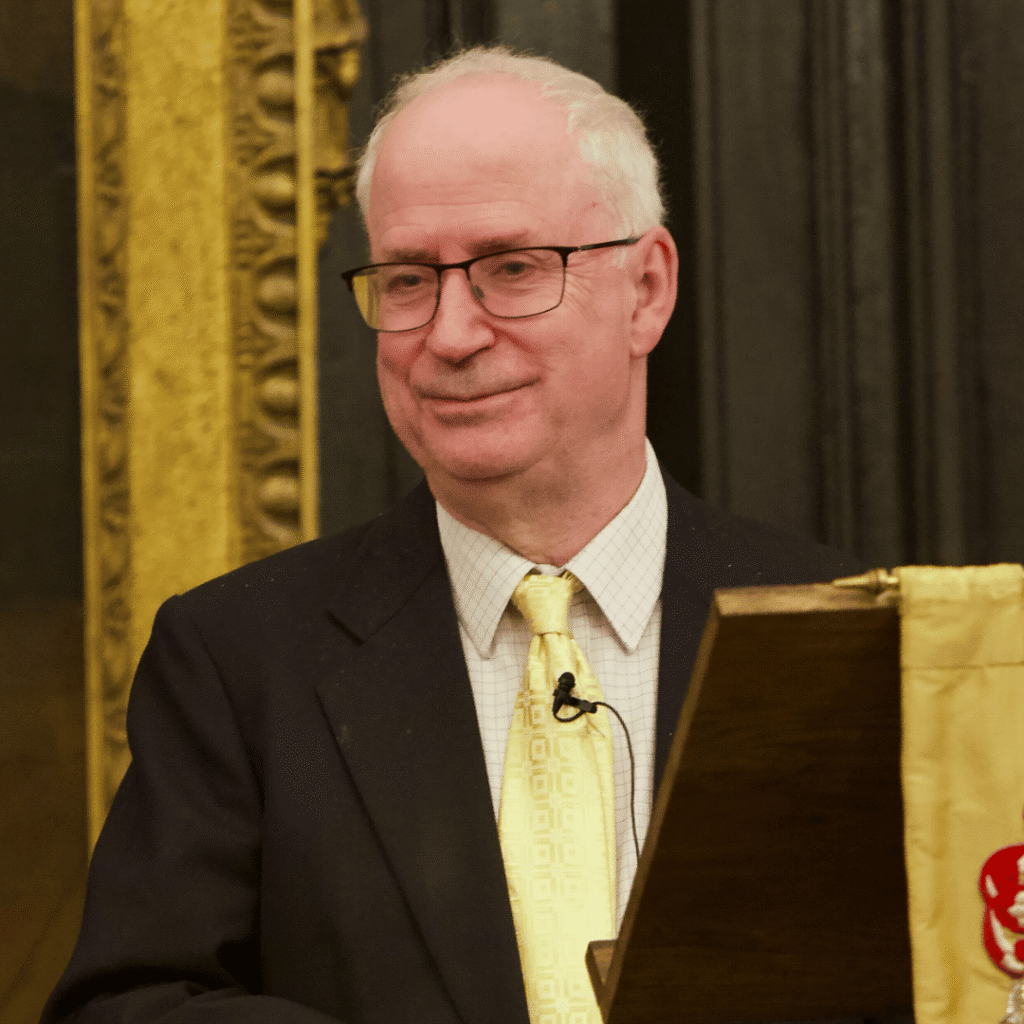
- “It’s literally impossible to explain to you all the emotional turmoil scarring has had on me, my family, my sons, my brothers, my husband. Just the other day I heard my five year old explaining to his friend why Mummy’s ear seemed to be coming off. It’s a prosthetic and it really needs to be replaced (it’s on the to do list)”
- Dr Hemani Modasia-Shah, Scar Free Trustee and Ambassador
After the lecture, Hemani took the floor. She brought the academic and historical discussion into sharp, lived reality when she addressed Simon’s talk, saying she could pinpoint exactly when she had “had enough” of further surgery.
She shared how, at just 18 months old, a candle set her pyjamas alight, leaving her with life-changing burns. Thanks to skilled surgeons and advances in medical science, she survived, but the lifelong operations, pain, and challenges of keloid scarring persist. Her decision to stop further reconstructive or “preventative” surgery in her twenties resonated powerfully, embodying a central tension: the cost, physical and emotional, of continual repair.
Yet things changed during her second pregnancy: Hemani’s abdomen wouldn’t stretch as her baby grew. She detailed having “laser and microneedling and all of this stuff that I promised I would not be doing just so that I could grow my baby” and she is unable to breastfeed on one side because of the scarring on her chest. The audience was visibly moved when she spoke of her young son explaining to a friend why “Mummy’s ear seems to be coming off”, a moment that captured the everyday realities of living with visible difference when there is no solution to scarring.
Hemani’s overview of Scar Free-funded research, from 3D bioprinting, to supporting surgeons and survivors worldwide, gave a glimpse into a future where people’s stories of survival no longer have to include pain or repeated surgery.
She ended on a characteristically brave note: announcing her plan to skydive from 12,000 feet to raise funds for the Foundation’s ground breaking research. As she invited the audience to support her leap, it was clear her message had landed: scars tell stories, but with enough support, the next generation may not have to bear them at all.
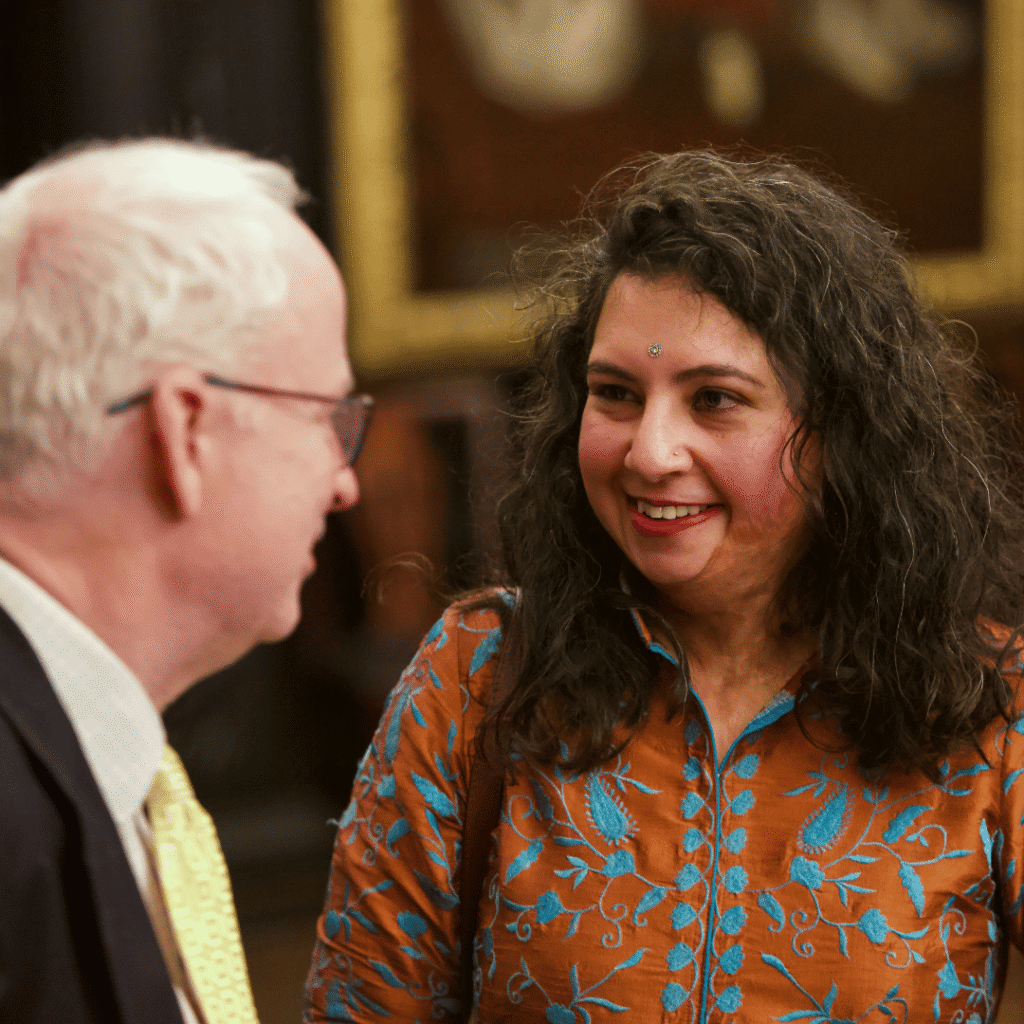
We were also joined by our fantastic sponsors, PolyNovo (pictured here with our latest Scar Free Elective Award winner, Arooj), who enabled us not only to host our inaugural Scar Free lecture, but bring together our Scar Free community.
Last year, PolyNovo sponsored our two day Scar Free Foundation Symposium at The Royal Society, which saw researchers and experts from around the world forge new connections, share expertise, and discuss collaboration. Thank you to our fantastic sponsor for making our first-ever lecture and Symposium possible!
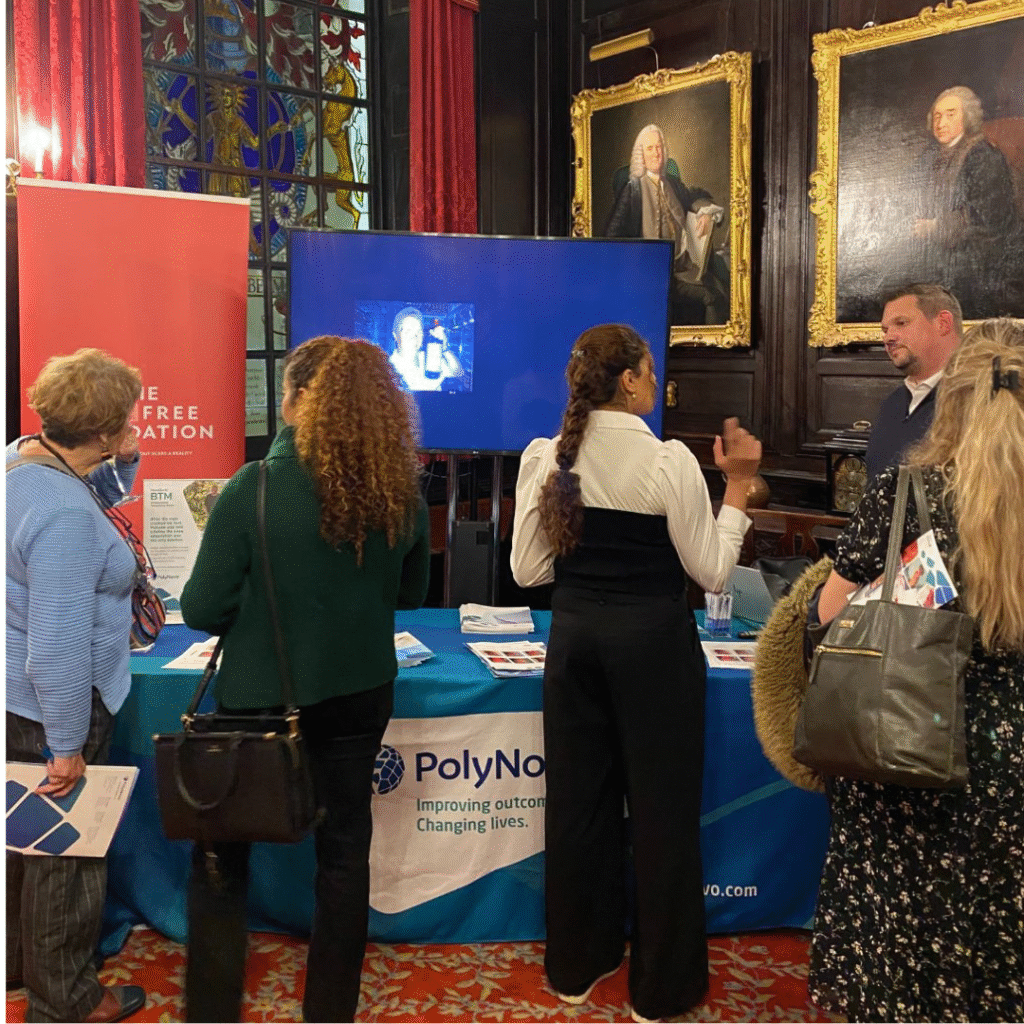
Professor Wessely’s lecture set the tone for what will become a signature moment in our calendar – a space where bold ideas and compassionate practice meet to advance our shared mission: a world without scarring.
We are driven by patient need – at any given moment, a scar could change your life. Five million people live with life-changing scars in the UK, along with all the physical and emotional impacts that come with them. Our psychological research into visible difference has delivered tools to help both civilians and veterans, and with your support, we can get help to those who need it most.
Thank you to everyone who joined us for such a memorable evening. See you at the 2026 lecture!
News and views

JPRAS special edition celebrates 25 years of The Scar Free Foundation
JPRAS ‘Wounds Special’ features Scar Free collaboration, foreword, and contributions from Scar Free research groups
Find out more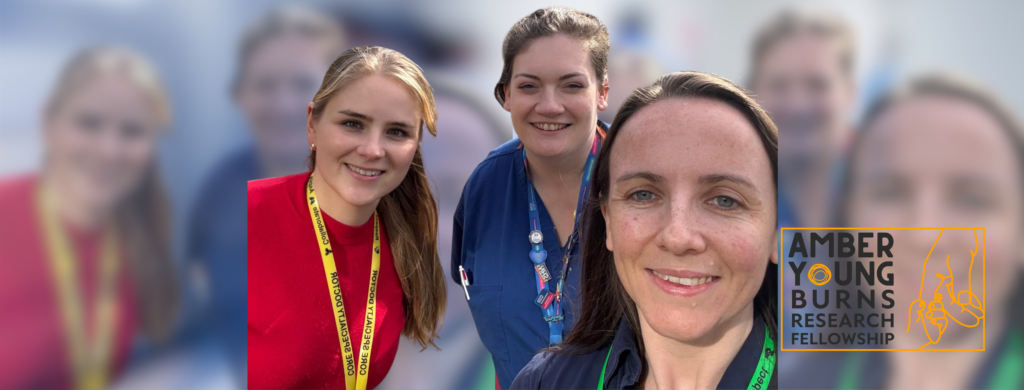
Mapping the future of paediatric burn care: Spotlight on Liv Hartrick, 2025’s Amber Young Burns Research Fellow
Liv Hartrick (pictured right) will begin first-of-its-kind research with the hope of improving outcomes for children across the UK
Find out more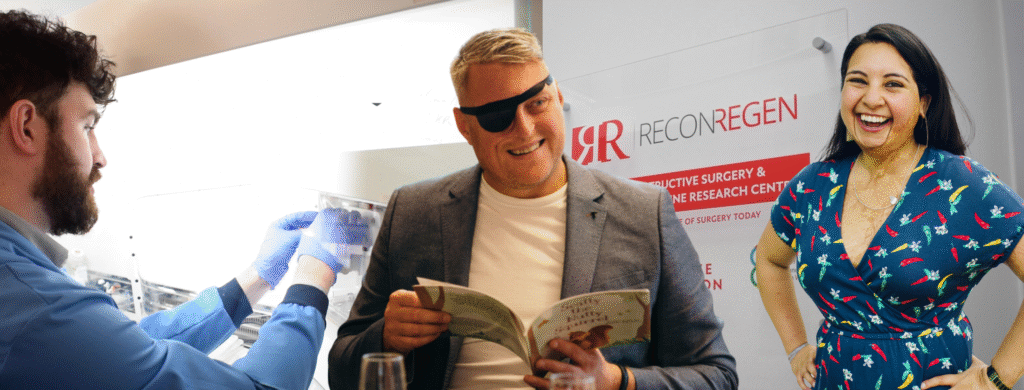
How support shaped our year 💌 The Scar Free Foundation 2025 annual round up
Our supporters made 2025 a year to remember!
Find out moreSo I hope I managed to convince you that looking backwards is an essential part of looking forwards,
and that there’s a kind of golden thread that emerges from the pioneering surgery of Gillies and McIndoe,
genius as both they were to modern advances coming from the work that Scar Free has founded and not imaginable in the time.
Gilles and McIndoe, of course, but also how surgeons have become more and more aware that it’s not just technique,
which they’re good at, but an understanding of the aesthetics of appearance and other ways of representing them that is very important.
And finally, just how Much benefit comes from the patients themselves, the survivors themselves,
the people who’ve been through all this, from the guinea pig club and what that did.